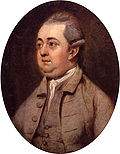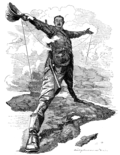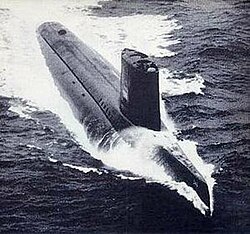Portal:History
The History Portal
History is the systematic study of the past, focusing primarily on the human past. As an academic discipline, it analyses and interprets evidence to construct narratives about what happened and explain why it happened. Some theorists categorize history as a social science, while others see it as part of the humanities or consider it a hybrid discipline. Similar debates surround the purpose of history—for example, whether its main aim is theoretical, to uncover the truth, or practical, to learn lessons from the past. In a more general sense, the term history refers not to an academic field but to the past itself, times in the past, or to individual texts about the past.
Historical research relies on primary and secondary sources to reconstruct past events and validate interpretations. Source criticism is used to evaluate these sources, assessing their authenticity, content, and reliability. Historians strive to integrate the perspectives of several sources to develop a coherent narrative. Different schools of thought, such as positivism, the Annales school, Marxism, and postmodernism, have distinct methodological approaches.
History is a broad discipline encompassing many branches. Some focus on specific time periods, such as ancient history, while others concentrate on particular geographic regions, such as the history of Africa. Thematic categorizations include political history, military history, social history, and economic history. Branches associated with specific research methods and sources include quantitative history, comparative history, and oral history.
History emerged as a field of inquiry in antiquity to replace myth-infused narratives, with influential early traditions originating in Greece, China, and later in the Islamic world. Historical writing evolved throughout the ages and became increasingly professional, particularly during the 19th century, when a rigorous methodology and various academic institutions were established. History is related to many fields, including historiography, philosophy, education, and politics. (Full article...)
Featured picture
Did you know (auto generated)

- ... that despite his distinguished family history, musicologist Yuri Shcherbinin told friends that "what matters most is what you are, not who your ancestors were"?
- ... that when Wilson Starbuck's play Sea Dogs was staged in 1939 it "contained some of the foulest language heard on Broadway" at that point in history?
- ... that public health measures and advances in medical science in modern human history helped raise global life expectancy from about 31 years in 1900 to over 66 years in 2000?
- ... that throughout the history of education in Wales, schools have been held in monastic settlements, cathedrals, residential houses, marketplaces, barns, churches, and village halls?
- ... that no one laughed at the worst joke in legal history?
- ... that Seattle Reign FC have had three name changes during their 11-year history?

Count Nikita Moiseevich Zotov ( Russian: Никита Моисеевич Зотов, romanized: Nikita Moiseyevich Zotov, IPA: [nʲ'kʲta moɨ'sʲɛɪvʲɪt͡ɕ 'zotv] ⓘ) (1644 – December 1717) was a childhood tutor and lifelong friend of Russian Tsar Peter the Great. Historians disagree on the quality of Zotov's tutoring. Robert K. Massie, for example, praises his efforts, but Lindsey Hughes criticizes the education that he gave to the future tsar.
Not much is known about Zotov's life aside from his connection to Peter. Zotov left Moscow for a diplomatic mission to Crimea in 1680 and returned to Moscow before 1683. He became part of the "Jolly Company", a group of several dozen of Peter's friends that eventually became The All-Joking, All-Drunken Synod of Fools and Jesters. Zotov was mockingly appointed "Prince-Pope" of the Synod, and regularly led them in games and celebrations. He accompanied Peter on many important occasions, such as the Azov campaigns and the torture of the Streltsy after their uprising. Zotov held a number of state posts, including from 1701 a leading position in the Tsar's personal secretariat. Three years before his death, Zotov married a woman 50 years his junior. He died in December 1717 of unknown causes. (Full article...)
On this day
April 25: Liberation Day in Italy (1945); Anzac Day in Australia and New Zealand
- 1643 – First English Civil War: Despite being vastly outnumbered, a Parliamentarian force under James Chudleigh defeated a Royalist army near Okehampton, Devon, at the Battle of Sourton Down.
- 1915 – First World War: The Australian and New Zealand Army Corps landed at Anzac Cove while British and French troops landed at Cape Helles to begin the Allied invasion of the Gallipoli peninsula in the Ottoman Empire.
- 1960 – The U.S. Navy submarine Triton (pictured) completed the first submerged circumnavigation of the world.
- 1983 – The first issue of The Jakarta Post was published in Indonesia.
- 2015 – Nepal was struck by a magnitude-7.8 earthquake, killing more than 8,000 people.
- Naresuan (d. 1605)
- Georg Sverdrup (b. 1770)
- Emmeline B. Wells (d. 1921)
Selected quote
As long as I breathe I hope. As long as I breathe I shall fight for the future, that radiant future, in which man, strong and beautiful, will become master of the drifting stream of his history and will direct it towards the boundless horizons of beauty, joy and happiness!
— Leon Trotsky, 20th century Russian revolutionary
Related portals
More Did you know...
- ... that the Japanese aircraft carrier Amagi (wreck pictured) capsized on 29 July 1945 as a result of cumulative damage inflicted by American airstrikes on 24 and 28 July?
- ... that Scandinavian influence in Scotland, still evident today, was probably at its height during the time of Thorfinn the Mighty?
- ... that, after the 2003 invasion of Iraq, the Bassetki statue, which is more than 4,200 years old, was found in a cesspool?
- ... that in medieval art, angels were often depicted wearing feather tights?
- ... that 49% of German military losses happened in the last 10 months of the Second World War in Europe?
- ... that Joshua L. Goldberg, the first rabbi to serve as a World War II U.S. navy chaplain, was a Russian army deserter?
- ... that Richard Nixon chose the Wilson desk as his Oval Office desk because he believed it was used by Woodrow Wilson, informed that it was used by Henry Wilson, Vice President under Ulysses S. Grant, but actually bought by Garret Augustus Hobart, 24th Vice President of the United States under President William McKinley?
- ... that some of the nominally silver Roman coins from the Bredon Hill Hoard only have a 1% silver content?
Topics
Categories

History • By period • By region • By topic • By ethnic group • Historiography • Archaeology • Books • Maps • Images • Magazines • Organizations • Fictional • Museums • Pseudohistory • Stubs • Timelines • Chronology • People • Wikipedia historians
WikiProjects
![]() WikiProject History •
Ancient Near East • Australian History • Classical Greece and Rome • Dacia • Former countries • History of Canada • Chinese history • European history • Heraldry and vexillology • Indian history • Jewish history • Medieval Scotland • Mesoamerica • Military history • Middle Ages • History of Science
WikiProject History •
Ancient Near East • Australian History • Classical Greece and Rome • Dacia • Former countries • History of Canada • Chinese history • European history • Heraldry and vexillology • Indian history • Jewish history • Medieval Scotland • Mesoamerica • Military history • Middle Ages • History of Science
WikiProject Time • Days of the Year • Years
WikiProject Biography • Composers • Political figures • Saints • United States Presidents
Things you can do
 |
Here are some tasks awaiting attention:
|
Associated Wikimedia
The following Wikimedia Foundation sister projects provide more on this subject:
-
Commons
Free media repository -
Wikibooks
Free textbooks and manuals -
Wikidata
Free knowledge base -
Wikinews
Free-content news -
Wikiquote
Collection of quotations -
Wikisource
Free-content library -
Wikiversity
Free learning tools -
Wiktionary
Dictionary and thesaurus






















































